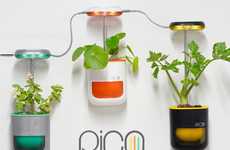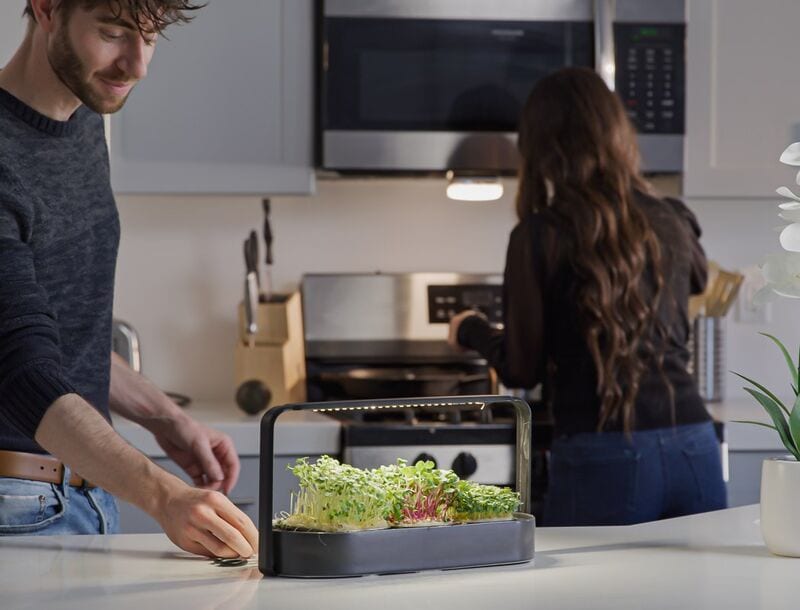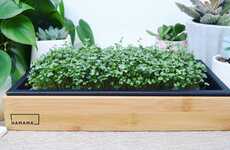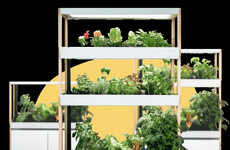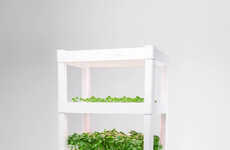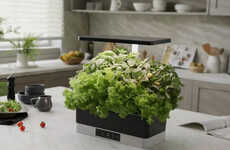
The 'tablefarm' Smart Indoor Microgarden is Easy to Use
Michael Hemsworth — November 12, 2020 — Tech
References: kickstarter & yankodesign
Microgreens are renowned for their nutrient-dense nutritional profile but can be tricky to grow from home and expensive to purchase, so the 'tablefarm' smart indoor microgarden is designed to help make the process of accessing them everyday far easier.
The indoor garden works without the need for soil and instead utilizes a pad that is integrated with seeds in order to only require water and the built-in lighting system to grow strong microgreens from anywhere in the home. This will come as welcome news to those who want to increase their intake of healthy foods each day without the need to consume large amounts of fully-grown veggies.
The 'tablefarm' smart indoor microgarden has a built-in timer for the light and will consume just $6 of electricity per year to make it a truly eco-friendly addition to the home.
The indoor garden works without the need for soil and instead utilizes a pad that is integrated with seeds in order to only require water and the built-in lighting system to grow strong microgreens from anywhere in the home. This will come as welcome news to those who want to increase their intake of healthy foods each day without the need to consume large amounts of fully-grown veggies.
The 'tablefarm' smart indoor microgarden has a built-in timer for the light and will consume just $6 of electricity per year to make it a truly eco-friendly addition to the home.
Trend Themes
1. Smart Indoor Microgardens - Developing smart indoor microgardens can be a viable solution for those with limited space or no access to outdoor gardens.
2. Soil-free Gardening - Investing in a soil-free gardening system can be an innovative solution for increasing yields while also reducing water consumption and soil waste.
3. Health-conscious Plants - Growing health-conscious plants, such as microgreens, can be a trend for those looking to add nutrient-dense food to their diet while also reducing their carbon footprint.
Industry Implications
1. Home Appliances - Companies in the home appliances industry can invest in developing indoor microgardens to provide consumers with a sustainable and eco-friendly solution for growing their own produce at home.
2. Food Industry - The food industry can leverage smart indoor microgardens as a way to provide fresh and nutritious produce to customers while reducing the impact on the environment from transportation and packaging waste.
3. Sustainability - Businesses focused on sustainability can capitalize on the trend of soil-free gardening and other eco-friendly practices to promote healthier living and stewardship of environmental resources.
5.9
Score
Popularity
Activity
Freshness




